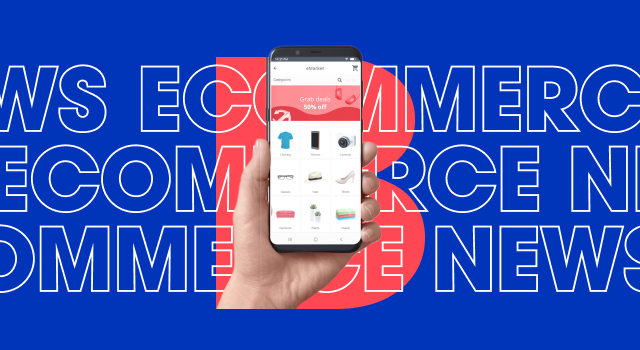Do you think your business has an established branding? If you think that it has, is it strong enough to stand out?
Out of the 9.7 million sellers on Amazon, 2 million are actively selling on the platform. That’s a lot of competitors to beat!
Well, nobody said the Amazon journey would be easy. But you do have a chance to stand out, especially with the branding know-how we compiled for you today:
- Brand building in 2024 🏋️
- The perfect financing strategy for your brand 🪙
- Brand vs. brand identity vs. brand image vs. branding 🔍
- Tailoring your brand style guide 🪡

BIG IDEA
Your brand is more than a catchy name or a well-designed logo. It's the vibe you put out into the world, the story you tell, and the values you stand for.
But with so many equally competitive rivals out there, how do you build a stand-out brand?
🏗️ Shopify suggests laying a strong foundation first. Here are the key blocks to help you get started:
- Target audience: Who are you trying to reach?
- Brand identity: How do you want customers to see your brand? (Ex. A sophisticated brand or a preppy one?)
- Brand voice: What should your business sound like? (Ex. Are you going for a friendly voice or do you want to sound authoritative?)
- Mission and values: What do you stand for?
🧰 Crafting your brand
After you lay the groundwork, it's time to bring your brand to life. Here's a quick rundown of the process:
- Research your market. Know thy enemy—and thy customer. You can't design a logo that resonates with your target customers without knowing their preferences. Likewise, you can't create your unique selling proposition (USP) if you don't know what your competitors are up to. 🕵️
- Define your voice and personality. Think of what ‘flavor’ could set you apart from other sellers to ensure customers can remember and immediately recognize you.
- Choose your brand namebased on factors like availability, relevance, and memorability. Don't forget to secure a matching domain name—it's crucial in today's digital landscape.
- Write your brand story and slogan. This humanizes your brand, so make it authentic, transparent, and, above all, relatable. It should also reflect your values and mission.
- Create a brand style guide. Develop a style guide that dictates your brand's visual elements, from colors to fonts to aesthetic effects.
- Design your logo. Whether it’s sleek and modern or quirky and fun, your logo should be able to tell your brand’s story at a glance. 👀
- Apply your branding—and spread it across all your channels customers look.
▶️ Pro tip: Never stop building
Building your brand doesn't stop after your first logo. Many companies, even top-tier ones, refurbish their brand identities over time. So, keep listening to your audience, adapting to new trends, and nurturing your brand.
Remember, a thriving brand is more than just a logo—it's a story unfolding, chapter by chapter.

TOGETHER WITH UNLOOP
Branding isn’t enough—here’s how you create a perfect financing strategy
The road to making money on Amazon is full of sharp turns. For instance, you'd have to navigate around accounting challenges standing between you and a smooth-sailing cash flow.
Unloop knows how exhausting managing your books can get. That's why they devised Unloop Connect—a self-serve app that'll help you brave endless Amazon transactions with ease.
🔢 What can Unloop Connect do?
The main charm of Unloop Connect lies in its ability to automate your accounting process. But aside from this, you can squeeze 4 amazing benefits out of this app:
- Streamline your transactions by connecting Amazon to QuickBooks Online and letting the app categorize them for you.
- Monitor how much you're making and spending with organized profit and loss reports.
- Show off your finances to potential investors with confidence.
- Complete your bookkeeping conveniently with its easy-to-use interface.
Why should you choose Unloop?
First off, its app is FREE! Who doesn't want an extra hand with crunching numbers without the extra costs?
But if you want a more premium experience, they also offer comprehensive accounting services. You'd have to shed a few dollars, but their team of experts will make it all worth it. They're more than willing to handle your books if the free app seems overwhelming. 🤝
Ready to transform your Amazon accounting journey? Get started with Unloop today and book a 30-minute discovery call!

BITES OF THE WEEK
- Legally Brand: Here's a list of the legal documents you need when building your brand.
- Know the Difference: Branding, marketing, and sales are not the same thing—but they do have some overlaps.
- Logo Inspo: Searching for design inspiration? You may want to check out different types of logos and their applications.
- Get Marked: Did you know you can gain special advantages from having your brand trademarked?

HOT TOPIC
Brand vs. brand identity vs. brand image vs. branding
People often mix up brand, brand identity, brand image, and branding, thinking they're all the same. So, to clear up the confusion, Canva explained what each of these terms means.
- Brand: It's everything that defines who you are as a company, from your mission and vision to your products and social media presence.
- Brand identity: It's the visual and tonal choices you make to represent your values and tell your story.
- Brand image: It's how your audience sees you based on your visual elements (like logos and colors) and how you communicate with them.
- Branding. It's the process of creating your brand and putting it out into the world through campaigns and strategies.
👨🏫 How to build your brand identity
Building a brand identity that deeply connects with your audience is no walk in the park. It takes understanding, strategy, and a whole lot of creativity.
Here’s a four-step roadmap to create your brand identity:
- Know your audience inside out. Dive deep into who your audience is, what they need, and what makes them tick. This isn't just about demographics—it's about understanding their pain points and desires on a personal level.
- Select appropriate brand elements. Your colors, fonts, and logo say a lot about your brand. Choose those that complement your brand's personality and are suitable across all your materials.
- Strengthen your brand image. Create detailed brand guidelines to ensure consistency across everything—from social media posts to email templates.
- Set strategic goals. Define your goals and tailor your strategy to each medium. Remember, your brand image directly impacts purchasing decisions, so it's essential to get it right.
💡 Special step: Track the impact of your branding efforts. Most importantly, don’t be afraid to tweak and refine your brand identity as you grow and learn more about your customers.

ACTIONABLE ADVICE
3 steps to create a tailored brand style guide
After tackling the ways to create a strong brand and keep your brand identity consistent, we now arrive at one crucial application of your new-found knowledge: creating your brand style guide.
📃 To help you give your brand that unmistakable identity, Shopify listed the nitty-gritty of creating a brand style guide that could speak volumes about your brand personality:
1. Define your visual style
Let's start with the basics: your brand's look. This includes your logo, fonts, and colors—the things that give your brand its visual flair.
Your style guide must spell out how these elements should be used to ensure consistency across all your platforms. 🎨
2. Choose your written style.
This isn't just about the words that define your brand. It's about the standardized tone and voice that resonate with your audience. ✍️
Think about your brand's vibe—is it relaxed or professional? And don't overlook the importance of tone! It's the spice that infuses character into your message.
3. Add complementary elements.
There's no strict guideline on how you can create your style guide. If you're feeling fancy, you can go beyond the basics and add some extra flair to your style guide.
For instance, you can share your brand's backstory, mission, values, and more. These juicy details give context to your style choices and help others understand the soul of your brand. 📖
🚀 The sky's the limit
Style guides are like your brand's personal playbook. They're as unique as your fingerprint, designed specifically for your brand.
There are no rules or regulations—just pure creativity to make your brand pop in a crowd.








